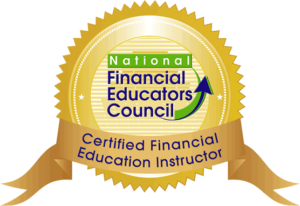Introduction
This article highlights pathways for readers who have a desire to achieve or improve on financial fitness.
As you read, look back and identify your areas of weaknesses and the mistakes you made in the past. The objective is to avoid these mistakes in future and thrive financially. Remember, all our circumstances are different, and everyone has a unique financial journey.
I will write on principles that are critical for anyone with a goal for financial fitness. Note that these tutorials like any manual will only help you change your financial situation if you TAKE Action. Be determined to take necessary action to achieve your financial fitness. Tony Robbins, an American Businessman, motivational speaker and ‘life coach’ says “If you change nothing, Nothing will change.”
- Understand Financial Fitness and Financial Freedom
Understanding financial fitness and financial freedom is relevant for all persons irrespective of the season of life; young graduate, mid-level career person, top management/executive, business owner, pre-retirement, or retired.
Financial fitness means being able to manage your money to meet your current and future needs. Being financially fit means understanding and applying the principles and best practices for financial planning, saving, budgeting, and investing right to achieve financial freedom.
If financial fitness is important for financial freedom, what then is financial freedom? Financial freedom is achieved when you have enough money or income to pay your living expenses for the rest of your life without having to depend on others. Simply put, financial freedom means getting to the stage where you have enough money working for you to meet your needs – i.e., you stop working while your money begins to work for you. It is that stage you attain where your passive income exceeds your expenses. We define passive income as income that requires minimal or no labour to earn and maintain.
Financial fitness is a life journey towards financial freedom and requires continuous attention. Everyone is on the financial fitness journey. While the poor will focus on moving away from being financially dependent on people, the focus of the wealthy will be to retain, sustain, grow and preserve their wealth.
Everyone must aim to keep working at financial fitness to ensure their passive income is grown, sustained and continues to EXCEED their EXPENSES. We must have a goal to gradually move away from depending on active income to passive income.
- Obtain Financial Education
In order to be financially fit, you must possess financial education and stay financially literate.
What is financial literacy?
Financial literacy is the possession of the set of skills and knowledge that allows an individual to make informed and effective decisions on their money & financial resources.It covers money concepts like financial planning, making a budget, savings, investments, managing debt, planning for retirement, and being aware of financial frauds. etc
There are many ways to get financial literacy and financial education to stay up to date and these include:
• Subscribe and sign up for useful newsletters & join relevant online communities
• Work with a Finance Coach and have a Finance Mentor
• Follow coaches online
• Attend webinars and money discussion sessions
• Walk & work with a Financial Mentor and a Finance Coach.
- Financial coaching and Financial mentoring
Working with a Finance Coach or Financial Mentor is another way to stay financially fit. One of the responsibilities of your coach or mentor is to keep you informed on money matters and guide your habits around this. In holding your hands and giving you needed guidance, they also help you stay updated on skills and knowledge that will help you make informed and effective decisions about your money.

Who is a Financial Mentor? – A Financial Mentor is a trusted guide or counselor that helps a person in the area of business, personal finance and investments. A Financial Mentor will teach you financial tactics and strategies based on his experience to guide you from making mistakes and errors while working to attain your financial goals.
Who is a Finance Coach? – A Finance Coach will help you develop plans to achieve your goals and will help you understand the basics of personal finance and help you develop and maintain healthy financial habits.
Your Finance Coach or Financial Mentor can also act as an accountability partner, holding you responsible for your actions and inactions.
Anyone who works closely with a coach or mentor will have access to current information relevant to stay financially fit.
- Have financial targets and work with a financial plan
“By Failing to plan, you are planning to fail.”
– Benjamin Franklin.

Financial targets and plans are very fundamental for financial fitness.
A financial target is a money-related objective you want to achieve over a period of time. Your financial targets help you put a boundary around your money and also give your money direction.
Your financial plan is the detailed proposal for achieving your financial goals. It is the roadmap that will guide you to your desired destination.
Your financial targets should be classified into short term goals (achievable within 12 months), medium term goals (achievable between 1 and 5 years) and long-term goals (achievable in 5 years and above).
Some examples of financial Targets/goals are listed below:
Short term (12 months)
• Furnish your house
• Family holiday
• Register for a professional examination
• Undertake a professional certification
• Acquire skills
Mid-term (1 to 5 years)
• Pay off a loan or a portion of a loan this year (car/house/?)
• Buy land/ build the foundation of your house
• Start a business

Financial Freedom is achievable by everyone.
Long term (over 5 years)
• Save towards retirement
• Financial liberation for your lineage (from poverty)
• Save towards children’s education
• Become fully self-employed
• Expand your business
• Pay off mortgage
• Build to Own your own home
“Always plan ahead. It wasn’t raining when Noah built the ark.”
Richard Cushing – American Bishop
“What Is a Financial Plan?
Investopedia defines a financial plan as a document containing a person’s current money situation and long-term monetary goals, as well as strategies to achieve those goals. Your financial plan includes laid down strategies, guidelines and instructions to stay financially fit and achieve your financial targets/goals. A good financial plan will consider your current earnings and available cashflow, what you own versus what you owe, cost of living, your stage/season in life, your marital status and risk appetite. All these will help you establish what you can save towards your goals, how much and for how long.
While you can set your financial targets and develop a suitable financial plan to achieve your goals, I recommend that you work with a financial advisor or financial planner for better results. You can get support from paid services oryou can seek pro-bono services.
No matter how difficult things may turn out to be, a good financial plan will keep you in control and help you adjust and get back on track faster from financial surprises and unexpected disruptions. Most people fail in their quest for financial fitness & freedom because they don’t set targets and work with financial plans.
- Use the budgeting tool and understand Where Your Money Is Going
A budget is an estimate of your expected income and expenditure for a set period of time which may be weekly, monthly, or annual. Budgeting helps you keep an eye on where every single naira or dollar is going . There is an adage that says ‘the devil finds work for idle hands’, I like to think that the devil also finds work for idle funds.
You cannot FIX your finances and be in control without effective budgeting & expense tracking.
In working with a budget, it is important to learn to apply the 50/30/20 budgeting rule.
This rule recommends that you make provision for your needs, wants and savings in the following ratios:
50% to your Needs (items essential to your survival that will cause great inconvenience if not available)
30% to your Wants (items not essential or necessary to survival, but which can improve the quality of life you live)
20% to your savings (which helps you grow your wealth. Your savings are eventually channeled to right investments).
Budgeting is not a complicated process, a simple spreadsheet or note book and a pen is all you need. - Apply the ‘ESI’ Model to achieve Financial Fitness
The ESI model teaches us to EARN more, SAVE better and INVEST well. When the ESI model is properly applied, we succeed in our journey towards financial freedom.
EARN More – Create multiple streams of income
Multiple streams of income means that you have income from several and different sources. Having multiple streams of income means that a person is receiving income from several, residual or passive income streams at once. Receiving income from several sources may include taking on more than one paid employment, rendering services in addition to a main employment or having a side business or hustle in addition to your main job.
If one source stops or is eliminated, you can rely on another source. Most people do not maximize and generate income from the opportunities they have.
Couples should both earn money for the family and assets owned should be deployed to earn revenue.
Understand the time value of money – To successfully work towards financial freedom, you must understand and value money and know that every penny counts. You must work to ensure that you get the best value for your 24 hours. Don’t accept a job if the salary won’t cover your expenses. Know that your time is your seed and once you accept, then you can’t effectively seek for a better job.
SAVE Better – How can I save BETTER?
The answer to this question is in three simple words; Plan, Budget, and Track.
I. Plan – where do you want to end up? Have a financial target and a plan to achieve this target.
II. Budget – Create a budget. i.e. put monetary values to your financial plan, put figures to achieve the plan
III. Tracking – helps you check progress by keeping good financial records of your earnings and expenditure.
TIPS to saving BETTER
No matter what you earn, put something away as savings. Most people say “how can I save anything when my salary is not enough to meet my immediate needs”.
The truth is if you are earning 90% of your current pay, you will still find a way to survive. Assume your actual take home is 90% of your income and apply the 10% to savings. The trick is to apply the self discipline to spend within the 90%.
If you don’t save when you earn little, you will struggle to save when you earn a lot. Learn to save from unexpected GIFTS. Many people who struggle to save are in the category of those who spend without a plan.
Don’t leave savings as the last thing after expenses, rather make it the first – that is why we call it ‘pay yourself first’. Every other thing after your savings requires you to pay others (eg when you pay your bills).

INVEST well – Understand investments and Diversify your investments
Understand investments – You must invest right if your goal of having financial freedom is to be achieved. Ask the right questions when offered an investment option. One money mistake many make is to commit to an investment opportunity without fully understanding the scenario. Do Not INVEST if you do not understand. Every business/investment opportunity comes with measured risks which must be well reviewed and checked before investing.
Where an opportunity offers unbelievable returns, it is a red flag, and you must ask enough questions.
If you don’t understand, don’t invest! Seek expert advice if required. Though it is important to take investment decisions promptly to avoid losses, this does not mean you should take decisions without having full information. You must ensure you have answers to all your questions. Only take investment decisions when you have all the answers.
Diversify your investments – Diversification is very key in creating and growing your wealth. This means spreading your money around and investing in different types of investments. By doing this, you reduce your risks and exposures. This is a good way to help protect your money, as it is unlikely that all your investments will perform badly at the same time. There are different classes of investments to choose from but four main areas to consider include shares, property, bonds and cash. Be conscious of the fact that you can have variety of options even within an investment option. E.g. Stocks, what mix of shares should you invest in as a player in the capital market? If investing in Property, be sure to consider different locations and different building projects.
Financial fitness requires that you do not put all your eggs in one basket. Spread your investments wisely so as to spread your risks and take advantage of various sources of income.
Conclusion
I want to conclude this article with this saying by Thomas Jefferson:
‘Nothing can stop the man with the right mental attitude from achieving his goal; nothing on earth can help the man with the wrong mental attitude’. -Thomas Jefferson
At the end of the day, if you will attain financial freedom by staying financially fit and organizing your personal financials, YOU need to have the right attitude to money and you musttake ACTION.
Bimbo Komolafe FCA, FCIB writes from Lagos and is a Certified Financial Education Instructor. She is a Fellow of the Institute of Chartered Accountants of Nigeria and a Fellow of the Chartered Institute of Bankers.
For more tips from the finance coach follow her on:
Instagram – @financecoachtoday
Twitter – @financecoachbk
Facebook – Finance coach money and wealth


